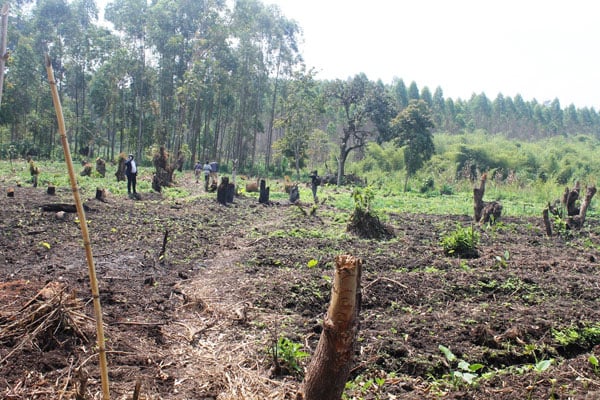Prime
Stop wetland settlement before it’s too late

A grader demolished homes belonging to alleged encroachers on Lubigi wetland in Nansana West II, Nansana Municipality in Wakiso District on June 11, 2024. PHOTO/NOELINE NABUKENYA
What you need to know:
The issue: Wetland settlement
Our view: Nema should stop reacting after the fact and start on the work of public education as well as enforcement of zoning to ensure not only the protection of the environment and biodiversity but also avoid another round of evictions several years down the road.
At the end of last month, the National Environment Management Authority (NEMA) carried out evictions in Ganda Village, Wakiso District, leaving more than 100 families homeless. The evictions have since expanded to include Nansana West II, Masanafu and Namungoona. In the evictions, families have lost homes and rental income while businesses lost properties worth millions of shillings. The evictions targeted people who are said to have settled in wetlands and are thus charged with destroying areas protected by law.
According to the National Environment Regulations 2000, wetlands are defined as areas permanently or seasonally flooded by water where plants and animals have become adapted; and include swamps, mambos, areas of marsh, peatland, mountain bogs, banks of rivers, vegetation, areas of impeded drainage, or blackish salt.
The government of Uganda gazetted wetlands, and issued the National Environment Notice 2023, declaring all 8,613 wetlands in the country as officially protected and critical ecosystems in which encroachment, drainage and pollution are prohibited. It must be in this spirit that NEMA has embarked on removing those identified as encroachers on wetlands. Lubigi, the affected area, is a gazetted wetland, albeit with contested claims on it by occupants claiming to have derived their rights of usage from Buganda Kingdom.
There have been calls for fairness in setting the criteria for eviction, or at least compensation for the affected people, many of whom have been rendered destitute by the evictions. For the businesses that remained standing, the public is asking pointed questions.
The controversy and pain surrounding the demolition of structures could have been avoided with timely implementation of laws to prevent settlement in wetlands in the first place. Over an extended period of time, individuals and institutions were allowed to acquire interest and put down roots and investments within what has been designated as Lubigi wetland.
Evictees have been displaying proof of tenancy documents and some of them are now headed to court to dispute their eviction in a clash that could have been avoided if we got the zoning right in the first place. The ambiguity continues, with settlements and developments being made every day in more areas that are marked or generally understood to be wetlands.
Nema should stop reacting after the fact and start on the work of public education as well as enforcement of zoning to ensure not only the protection of the environment and biodiversity but also avoid another round of evictions several years down the road.
Our commitment to you
We pledge:
- To be accurate and fair in all we do.
- To be respectful to all in our pursuit of the truth.
- To refuse to accept any compensation beyond that provided by Monitor Publications Ltd. for what we do in our news gathering and decision-making.
Further, we ask that we be informed whenever you feel that we have fallen short in our attempt to keep these commitments.




